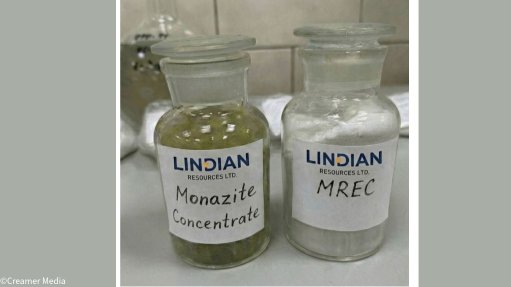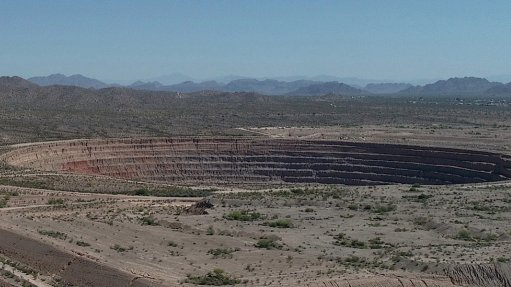On-The-Air (08/05/2020)
Every Friday, SAfm’s radio anchor Sakina Kamwendo speaks to Martin Creamer, publishing editor of Engineering News & Mining Weekly. Reported here is this Friday’s At the Coalface transcript:
Kamwendo: Mining companies intend to establish Covid-19 laboratories on their own mine sites to speed up the total testing process.
Creamer: Testing turnaround times are a problem the world over, we can see that. So, what is happening at the mine sites, particularly at Harmony Gold, is that there is a two-day turnaround time by congested laboratories so mining companies are taking steps to establish their own laboratory testing on site, on the mine premises to speed up the turnaround.
They want to get rid of that two-day delay and get the testing done quicker. This will avoid having to put people into quarantine situations for prolonged periods during the laboratory process. We see that the mine infrastructure already is very good to deal with medical matters and we were hoping that South Africa was in the lead.
But, we hear from Papua New Guinea that testing equipment has already been put in place there. Papua New Guinea seems to be ahead of us in South Africa and they seem to be completing their testing well before people get to the mines, with quick turnaround times. With our mines, companies have gone down to the Eastern Cape, they have gone down to the labour-sourcing areas, and tested the people before they actually get on a bus to get back to the mines.
Any who had high temperatures or who showed signs of being Covid negative were left behind and have been dealt with and hospitalised outside of the mining areas. Fortunately, mining companies are now taking big steps to have their own laboratories on the mine premises and using test equipment that is located on site at mines.
Kamwendo: Two mineworkers at two different mines this week tested positive for the coronavirus.
Creamer: Yes, out at Lydenburg, we have the Dwarsrivier Chrome mine. That test was done the 29th of April. They had to wait five days before they could actually find out that the person tested was Covid positive and then mining was suspended.
We can see that the test turnaround times are too long. Another second mineworker tested positive at Zondereinde mine in Limpopo, a Northam Platinum mine. That person has now been hospitalised. There have been two cases of mineworkers actually proving positive for Covid-19 and the mines having to suspend some of their operations and get these people to hospital. Test, trace and treat are now the three big ‘T’s’ and people are having to move faster.
Mines want to actually create their own labs to speed up test turnaround times. As an industry, mining is moving to create in-house laboratories on mine sites, where there are already good medical facilities, doctors and nurses. This will be an addition so they can do the tests in much bigger volumes and with far quicker turnaround times and isolate the people quicker if a person proves positive, and then trace those who have been in contact with that person and treat on a widespread basis.
Kamwendo: Just a follow up Martin, what happens in these mines, what has happened after these mineworkers tested positive?
Creamer: Firstly, the moment they test positive all the people are traced that have been in contact with them and they self-isolate and they wait there until the reports come back from the test labs. Like the two of them now that have tested positive, they are immediately hospitalised. The one, the Zondereinde mineworker, has been hospitalised in Rustenburg, and the Dwarsrivier mineworker in Mpumalanga.
Kamwendo: The exploded smelter complex of Anglo American Platinum – Amplats – has been brought back to life ahead of time, despite Covid-19.
Creamer: Yes, although there was Covid-19, the stricken smelting complex is now ramping back up towards full operation. If Anglo American Platinum had failed to do so, it would have been a terrible blow to the South African economy.
Amplats has got a magnificent processing plant called the ACP plant, the Anglo Converter Plant, and that is where they do a lot of processing of the high-value platinum group metals. At the time when the palladium price was sky high and the rhodium price was rocketing, there was an unfortunate explosion there. Because of the backup facilities mines have normally got, they had a phase B plant. So they weren’t panicking at all, They thought that while the exploded plant was being fixed, everything could be done in the standby phase B plant, with processing continuing as usual. But they had a terrible scare there because they found water ingress.
The moment there is water ingress into these furnaces there could have been a second explosion. They completely shut everything down and declared a force majeure. They then went headlong into repairing the Phase B plant, but got caught in the middle of the Covid-19 lockdown. So, they’ve had to split up teams, ensure ongoing physical distancing, screening and testing. Even with that, they have managed to cut a month off the scheduled repair time. They were supposed to bring this all back in three months, but they’ve done it in two months. That is going to be great for other companies as well, because you have got companies like Royal Bafokeng Platinum that also process through the ACP facilities, as well as Sibanye-Stillwater.
They say that by the 12th of May, that is on Tuesday, they will likely lift the force majeure and that these companies will then be able to process their material again, along with Amplats itself. This is a very big plus for South Africa, because we need to export refined platinum metal and earn vital foreign exchange, and there has been a hold up with that, but it could have been much, much worse.
Kamwendo: Thanks very much. Martin Creamer is publishing editor of Engineering News & Mining Weekly.
Article Enquiry
Email Article
Save Article
Feedback
To advertise email advertising@creamermedia.co.za or click here
Press Office
Announcements
What's On
Subscribe to improve your user experience...
Option 1 (equivalent of R125 a month):
Receive a weekly copy of Creamer Media's Engineering News & Mining Weekly magazine
(print copy for those in South Africa and e-magazine for those outside of South Africa)
Receive daily email newsletters
Access to full search results
Access archive of magazine back copies
Access to Projects in Progress
Access to ONE Research Report of your choice in PDF format
Option 2 (equivalent of R375 a month):
All benefits from Option 1
PLUS
Access to Creamer Media's Research Channel Africa for ALL Research Reports, in PDF format, on various industrial and mining sectors
including Electricity; Water; Energy Transition; Hydrogen; Roads, Rail and Ports; Coal; Gold; Platinum; Battery Metals; etc.
Already a subscriber?
Forgotten your password?
Receive weekly copy of Creamer Media's Engineering News & Mining Weekly magazine (print copy for those in South Africa and e-magazine for those outside of South Africa)
➕
Recieve daily email newsletters
➕
Access to full search results
➕
Access archive of magazine back copies
➕
Access to Projects in Progress
➕
Access to ONE Research Report of your choice in PDF format
RESEARCH CHANNEL AFRICA
R4500 (equivalent of R375 a month)
SUBSCRIBEAll benefits from Option 1
➕
Access to Creamer Media's Research Channel Africa for ALL Research Reports on various industrial and mining sectors, in PDF format, including on:
Electricity
➕
Water
➕
Energy Transition
➕
Hydrogen
➕
Roads, Rail and Ports
➕
Coal
➕
Gold
➕
Platinum
➕
Battery Metals
➕
etc.
Receive all benefits from Option 1 or Option 2 delivered to numerous people at your company
➕
Multiple User names and Passwords for simultaneous log-ins
➕
Intranet integration access to all in your organisation




















